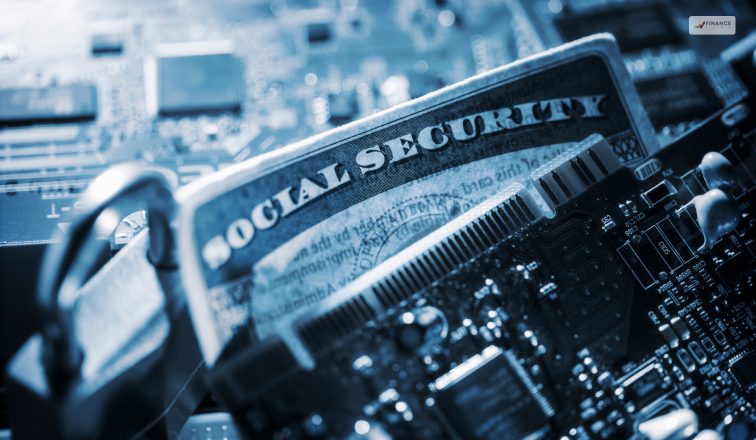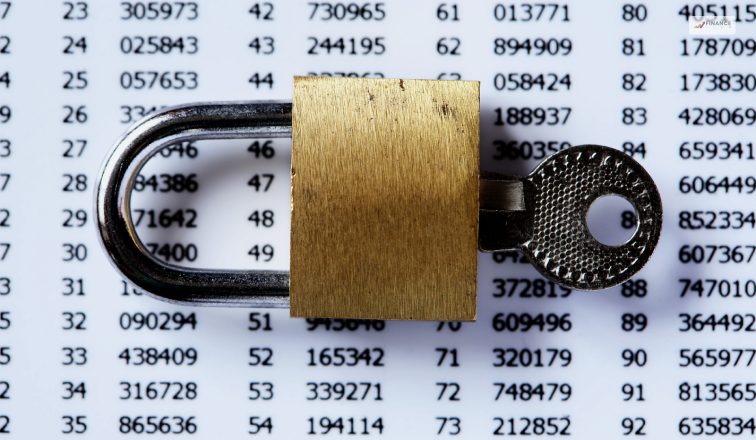- Here Are 10 Ways You Can Protect Your Social Security Number:
- 1. Do Not Disclose It Unnecessarily
- 2. Offer An Alternative ID
- 3. Use Data Monitoring Services
- 4. Leave Your Card At Home
- 5. Beware Of Scams
- 6. Tear Up Mail and Documents With Confidential Information
- 7. Monitor Your Accounts And Credit Score
- 8. Abstain From Using It As A Password
- 9. Do Not Send It Electronically
- 10. Do Not Give It Out To Strangers
- Conclusion
Here’s How You Can Protect Your Social Security Number!

Identity theft is one of the most common problems now. Many fraudsters siphon others’ SSNs. These SSNs are used for financial transactions. These gateways are vulnerable to theft.
There are many reasons why your SSN can be threatening. Others may use your SSN to apply for a new credit card. They may also obtain a loan using your SSN. Fraudsters can also collect many more benefits in your name. That’s why the safety of your SSN is paramount.
Any negligence can compromise your safety.
Here Are 10 Ways You Can Protect Your Social Security Number:

1. Do Not Disclose It Unnecessarily
Your Social Security Number should be guarded zealously. It’s good practice to ask why somebody needs this confidential information. It’s well within your rights to ask relevant questions.
Some of the questions you could ask are the following:
- Why are you asking for my SSN?
- Will you share my SSN with others once I give it to you?
- How will you keep my SSN confidential?
- Is there a privacy policy in place?
- Will you compensate me for any losses if my SSN is stolen or compromised?
Give out your SSN only if you’re convinced that it’s absolutely necessary. If in doubt, don’t disclose this confidential information.
Even the SSN prefixes reveal something about you. It identifies the state where you were born or resided when the number was issued. So, do not divulge your SSN, either in part or in full.
2. Offer An Alternative ID
There are forms of identification other than your SSN. If a business asks for identification, you may present your driver’s license.
Other alternative forms of identification include a Student ID (if enrolled in a college or university), passport, and proof of current/previous address like utility bills. This is another way of protecting your SSN from theft.
3. Use Data Monitoring Services
There are ID security apps that can monitor the internet. These applications help to scan through the dark web for your personal data. Data breaches could happen without you realizing it. However, these apps will let you know if your SSN has been compromised.
Most importantly, most of us are vulnerable to data breaches. It may affect you before you know it. But that’s where data monitoring services help.
Data monitoring informs the user whenever their SSN is compromised.
Not only SSN. There is other vulnerable data, too. For example, your email ID also exposes many details about you. So do your credit card, driver’s license, and other documents.
However, the good thing is that data monitoring services can track all of these. So, you would know whenever anything is stolen. Hence, you may take prompt protective action.
At the same time, you may block your credentials while you still can.
4. Leave Your Card At Home
Don’t leave your cards astray. But avoid taking your card anywhere you go, too.
These cards and documents are less safe in our wallets. I also avoid saving the SSN anywhere else. That’s why I don’t have any pictures of my credentials on my phone, laptop, or anywhere else.
All these documents are prone to be stolen. You don’t want your docs to fall into the wrong hands. At the same time, you usually don’t need your docs and cards daily. So, your cards should stay back home.
Rather than carrying your Social Security card around, memorize your SSN. Keep your SSN safely locked up in your head and your card locked up in your home.
5. Beware Of Scams
Because of how important your Social Security Number is, identity thieves, find every possible means to steal this information from you. Some use the phone and email scams to get your SSN.
They could go as far as misrepresenting themselves as Social Security Administration (SSA) personnel who will threaten to withhold your benefits if you don’t provide personal information. This is a sure indication that the call is fraudulent.
Another common scam is sending fake emails with attachments that look like the real deal, complete with the SSA seal. The recipient is directed to a fake SSA website that looks legitimate, with instructions to type in the SSN and other personal details. Asking you to provide your personal information is always a red flag.
6. Tear Up Mail and Documents With Confidential Information
It’s not safe to toss your mail and old paper documents containing your SSN in the trash. Anyone can just walk over to your trash bin and get your sensitive documents and retrieve the personal information on them. Therefore, it’s wise to shred these papers before discarding them to keep thieves from stealing your personal information.
Also, make sure to empty your mailbox regularly. Letting your mail sit there for too long gives fraudsters the chance to steal it to get your personal details.
7. Monitor Your Accounts And Credit Score
If an identity thief gains access to your SSN, your bank and credit card accounts will likely show unusual activities. These activities might go unnoticed if you don’t keep an eye on your accounts.
Therefore, it’s essential to monitor your accounts constantly and be on the lookout for any strange withdrawals or purchases. Furthermore, your credit score could be a good indicator of unusual activities so keep an eye on it as well.
If you notice anything out of the ordinary, notify your bank or credit card company immediately, then lodge a complaint with the Internet Crime Complaint Center (IC3) and IdentityTheft.gov.
Related Resource: Top 5 Ways Companies Should Manage Their Credit Risks In 2022
8. Abstain From Using It As A Password
While some people use their SSN as a password to ensure they don’t forget this number, this practice is very wrong and risky. You might think that only you could access your passwords. Unfortunately, passwords could be cracked or decrypted. Once identity thieves access your SSN, they can engage in fraudulent transactions at your expense.
9. Do Not Send It Electronically
There are risks involved in sharing your SSN using an electronic device. Never send it via email, instant message, or voicemail. As rare as this may sound, electronic transmissions may be intercepted, enabling fraudsters to steal your personal information. Giving out your SSN to authorized persons is safer to do in person.
10. Do Not Give It Out To Strangers
On the matter of disclosing your SSN, no one is to be trusted, let alone strangers. Ignore unsolicited emails or phone calls requesting it. In general, don’t give out your SSN except for legitimate reasons.
Conclusion
Your Social Security Number (SSN) is an important piece of personal information that deserves utmost protection. To avoid becoming a victim of identity theft, do not disclose your SSN to strangers or in unwarranted situations.
Follow all the other tips listed above to secure your SSN. Because much is at stake, be vigilant and promptly report any suspicious activity to the appropriate government agencies.
Read Also:










